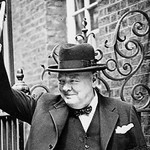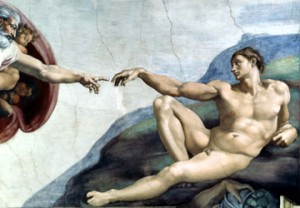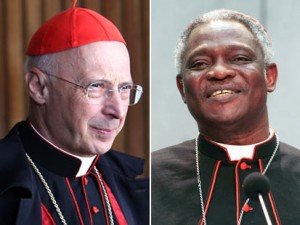When meeting with couples I am preparing to marry, I often share with them a nugget of wisdom: “The little things are the big things.”
In other words, in sustaining a marriage, the daily acts we do make the greatest difference. It’s not how big or beautiful the wedding is. It’s how we express our commitment in daily life.
I thought this quote again as I finished a phenomenal book entitled The Power of Habits. Written by New York Times reporter Charles Duhigg, it demonstrates the way achieving big goals on depends on seemingly simple routines and habits.
How This Process Works
We naturally develop habits and routines because our brainpower is limited. To conserve energy and allow it to learn new practices, the brain tries to convert regular and recurring sequences of action into automatic behaviors.
Common examples include driving, showering, or tying our shoes. While complicated at first, they become engrained behaviors, and we don’t have to think about them.
This natural process has both benefits and drawbacks. A key benefit is that we do not have to exert significant mental energy on routine tasks. Anyone who has taken drivers ed knows that driving is a complex process. Yet, once it becomes routine, it does not demand the same focus.
How To Break Bad Habits
The main drawback is that habits and routines are hard to break. Consider the habit of going to bed too late and not getting enough sleep.
This habit might be sustained by a cue (the desire to relax and enjoy ourselves after a long day at work) and a reward (the relaxing pleasure of watching our favorite late-night TV show, for example).
To break this habit we would need to change the behavior, but keep the reward. As Duhigg puts it, “If you want to get rid of a bad habit, you have to find out how to implement a healthier routine to yield the same reward.
Why We Need Faith
But even this is not enough. If all we had to do was change the behavior, breaking harmful habits would be easy. We need more.
In particular, we need faith and community. As Duhigg writes, “For a habit to stay changed, people must believe that change is possible. And most often, that belief only emerges with the help of a group.”
Faith is the most powerful habit-breaking and habit-forming tool we have. The presence of others who reinforce it makes us even stronger.

How Faith Helps Us Carry On
Faith also gives us the courage to carry on. In breaking bad habits or forming new ones, we will face obstacles. Our faith in our ability to change will give us the spiritual energy to succeed. Faith itself can become a powerful habit.
Winston Churchill defined its power eloquently during the dark days of the Second World War. He was talking about Great Britain, but he could just as easily been talking about every human being:
“Sure I am that this day, we are masters of our fate; that the task which has been set before us is not above our strength; that its pangs and toils are not beyond our endurance. As long as we have faith in our own cause and an unconquerable will to win, success will not be denied us.”
To receive Rabbi Moffic’s weekly digest of Jewish wisdom, click here.


